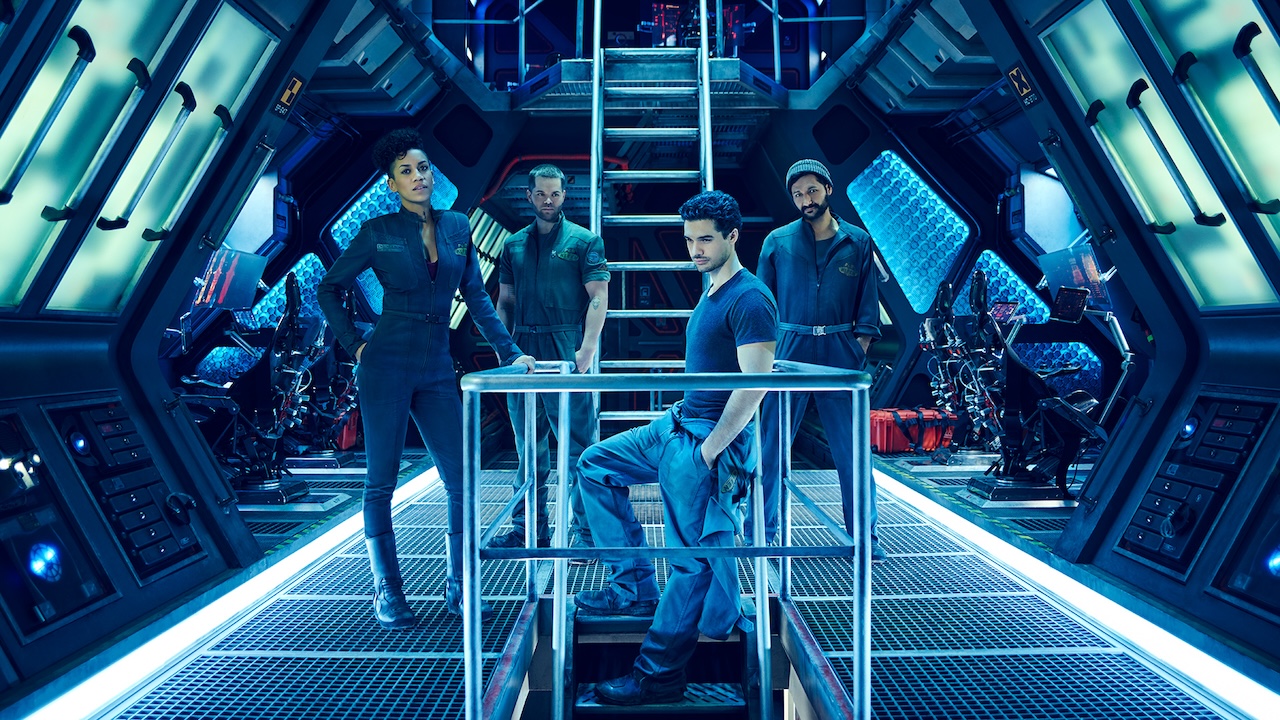- Which Screenplay Should You Write Next? (Part 1)
- Which Screenplay Should You Write Next? (Part 2)
Perhaps the most important decision any writer makes is what to write. There’s a lot to consider including the market, trends, your strengths, etc. When I started my career I had in mind to create good sci-fi material. It was what I read and loved and I couldn’t think of anything I’d want to do more.
Let’s examine some concepts.
Write What You Love
We get pigeonholed in any facet of life so why would scriptwriting be any different? I used to rail against this; resent it. Can’t people see how much depth and breadth I have as a writer? But it does make perfect sense. I love sci-fi and mysteries and my best work reflects that. The strongest writing is many times what you know and love.
There are a few reasons for this. One is that you understand the world. You ‘grok’ the nuances and scope. You may want to write robot novels or scripts, but if you don’t know Isaac Asimov’s work or movies like Ex Machina then you might be inadvertently copying material that’s already been done. Alex Garland who wrote (and directed) Ex Machina studied computer science and had many conversations with a friend who was a neuroscientist about the impossibility of any machine becoming sentient. A book by Murray Shanahan, a professor of cognitive robotics, convinced Garland otherwise, and so was born a movie that won Garland a Best Original Screenplay nomination.
Sports movies are written by fans of the sport or of sports in general like Frank Deford’s Everybody’s All American, Arrival had at its core linguistics, the study of language which Ted Chiang, the author of the source material (The Story of Your Life) embraced.
A lack of intense interest isn’t a total deal killer, but it does limit your chances of writing that amazing work or of getting it sold. If you’ve wondered why some scripts are hollow, this could be one of the reasons.
A second reason, is that what truly raises something above the noise, is the particulars. You don’t have to be an astronaut to write an astronaut saga – most of us aren’t – but some understanding of what that entails is essential. I’ve read many projects where the writer gets even the basic science wrong. A body in zero gravity doesn’t move the same way. The Expanse series gets down to the nitty gritty of life in a space ship both under and sans gravity. It adds a tremendous veracity to the work, be it novel or series. I’ve had scripts sold on the basis of one scene that was unique and compelling – I doubt I’d have gotten there without understanding and embracing the genre.

Main cast of The Expanse Photo courtesy of SyFy Networks
Write Truthfully in Imaginary Circumstances isn’t just a saying that I borrowed from the acting profession, it’s a mandate. The best way to do that is to understand (and love) what you’re writing.
The Market
Writing to the market is both the dumbest and smartest thing you can do. The truth is that after Game of Thrones made a splash, Vikings, Black Sails, The Last Kingdom and more tried to emulate its success. And in their own right, they were also successful. But those shows were already in production before you or anyone even knew how successful GoT would be. So trying to emulate after the fact really doesn’t work as well as you’d think despite what you see premiering on your streaming services. Furthermore, executives are inundated with knockoffs straight after a film or show’s success.
Most of us aren’t privy to the inner workings of Hollywood. We’re far behind production trends. Should you not write that epic fantasy movie or series? Of course you should, but just be aware that by the time you write and get it to market, that market is already saturated. Or not. Timing is everything.
Paying attention to trends is definitely a good thing. Many times in meetings execs will say, “We’re looking for something like a Spartacus.” Writing that dragon tale, or perhaps a Witcher-type epic is fine to have in your war chest if you get lucky one day and someone requests it.
Create The Trends
Keeping up with current events and social trends is essential to any writer. When I started writing, cellphones were called ‘bricks’. You could have knocked someone out with any Motorola phone. Sometimes I resurrect an old script with a viable concept and need to do a rewrite based on today’s world of iPhones and TikTok. Social media, ‘woke’ sensibilities, tats, and other trends in today’s world has me constantly watching newsfeeds for the latest.
Want to write a story that takes place in Russia? That would be completely different now than 4 – 5 years ago. Likewise, the pandemic changed our lives dramatically and still has massive impacts.
Look at the recent measles outbreaks in various states. Leprosy is making a horrifying comeback. Politics is splintered. Twenty years ago, coke was the drug of choice. Today it’s meth, zombie, ice and who-knows-what on the horizon. Giggle pig?
Peer into your crystal ball and see if you can predict the future. That gets you ahead of the curve instead of behind it.
Doctor, Lawyer, Cop
There’s easy answers to the question of why we see these same types of shows year after year.
NCIS, Shetland, Southland, and Blue Lights to name a few have built in drama and action and typically something to solve. Grey’s Anatomy, 9-1-1, Chicago Med reign because what’s more compelling than life and death in a format that allows endless scenarios? Audiences will reliably keep tuning in.

Main cast of Grey’s Anatomy. Photo courtesy of ABC Networks
Another reason to write these types of shows is it’s easy-peasy to get the main character(s) focused. These professions have build in motivations – and villains. Monk always wanted to figure out the crime. Midsommer Murders is a collections of villages with someone always doing something dastardly somewhere.
“he Gentlmen has a slightly different built-in profession driving the storylines – gangsters. And their motivation is almost always greed and power.
Surefire Genres
Mysteries will always sell, and if you can plot out a good one, you’re golden. There might come a time when a mystery will go the way of the western, but it’s doubtful. Going back to the early days of television with shows like Perry Mason, Naked City, The FBI, Colombo etc., mysteries have always found a ready audience so production companies love making them.
How many Sherlock Holmes variations have we seen? The Signal is a mystery of a different sort. Bones went twelve seasons trying to figure out, well, bones. Criminal Minds? Fifteen seasons – and more coming? Poirot is thirteen seasons over nineteen years.
Limited Locations/ Contained
There are always calls on the lead services for the so-called limited location film. The reason is obvious and directly in the title of the genre. Something that’s confined in a few locations, like a cabin in the woods, isn’t going to cost a lot and if it has a solid driving storyline it is a fantastic way to sell something immediately.
The Disappearance of Alice Creed is a stunningly good example of how to do this genre right. If there’s more than three actual locations I’d be shocked. Most of it takes place in an isolated cabin and the story keeps you guessing to the very end. It’s almost a play like Mousetrap. The recent The Outfit is another amazing example – a few rooms and a crackerjack storyline that keeps turning on itself.
Shadowlands, The Burning Be, The Breakfast Club, and Panic Room are older films that would be snapped up today. Consider that with a film or series with a large budget you might have 4 – 5 places to sell it; but a million dollar budget (or less) expands your potential market to dozens. Since this business is a numbers game and sales-oriented endeavor, it pays to have the numbers on your side to make that sale.
Based On/ Inspired By
Writing something based on a true story is always a solid choice. The issue may be the cost since historical means period outfits, cars, etc. and that drives the cost up. But you can be in great shape with some stories if you choose wisely.
Blackberry is a docudrama based on the rise and fall of Research in Motion, the company that invented Blackberry phones. Is there really enough interest in something like that? At one time, Blackberrys held 45% of the cellphone market. Consider that people used to call them ‘crackberrys’ and perhaps you get a sense of how obsessed people were with those devices.
Ever wonder how the iconic ‘hog’ got started? Harley and the Davidsons, a six-part miniseries tells that story. Ford v Ferrari tells a terrifically entertaining story about beating perennial LeMans winner Ferrari in 1966 with a revolutionary design.
Recent films like Oppenheimer and Barbie show there’s a market for historical events or just movies based on a historical toy. ProdCos are looking for market recognition to help the promotion of any project. Disney’s Pirates of the Caribbean, the game Halo and Fallout, and more deliver audiences (and script sales) because of their based-on nature.
True crime is huge on many streaming sites. Movies like Bad Vegan, What Jennifer Di”, or the insane limited series Tiger King made huge impacts. Unbelievable starring Toni Collette, The Watcher, or Murdaugh Murders: A Southern Scandal all on Netflix, show the capacity for that streamer’s ‘based-on’ mini-series appetite.

